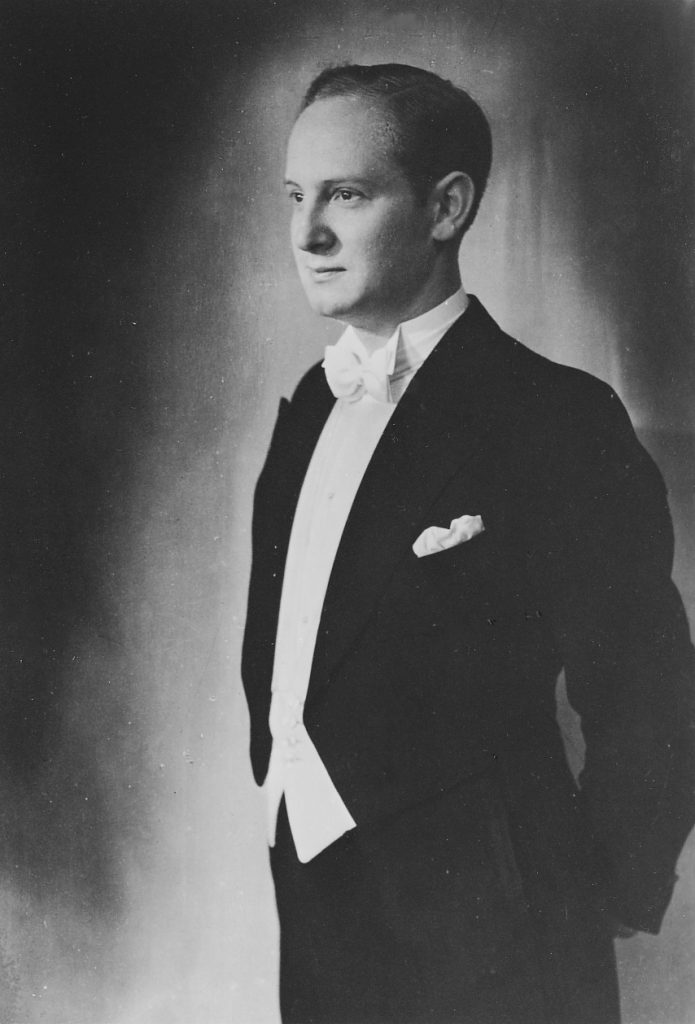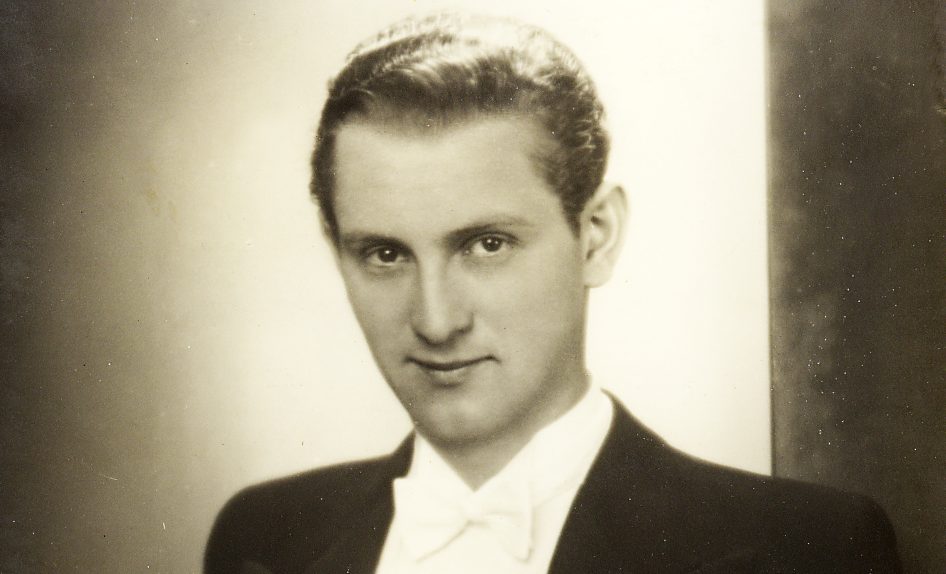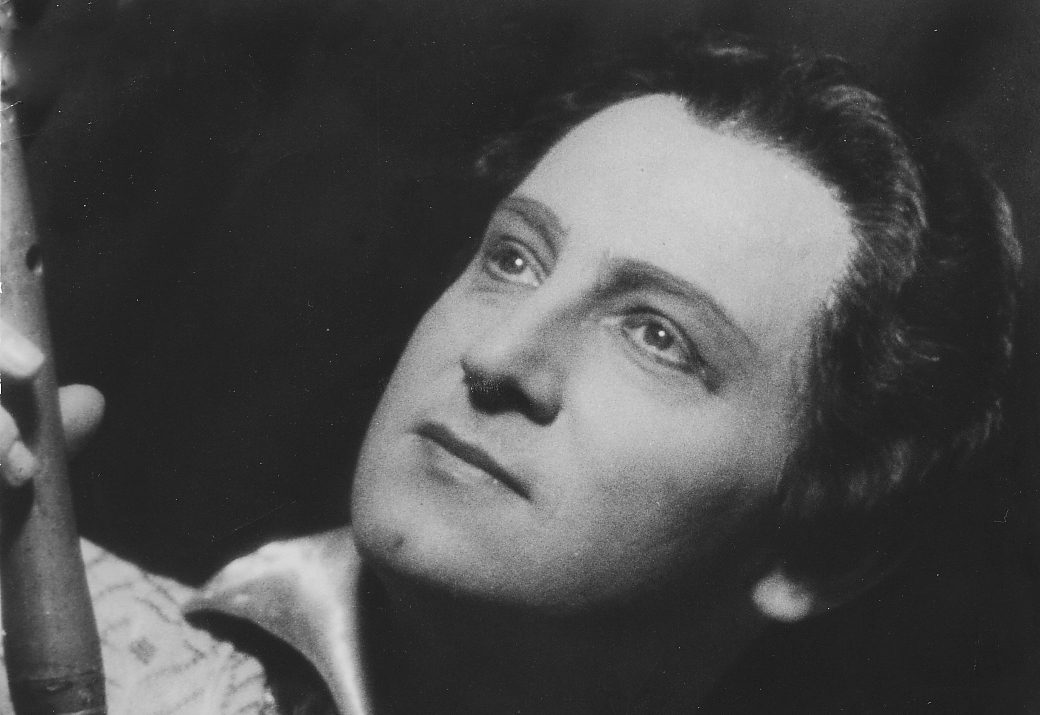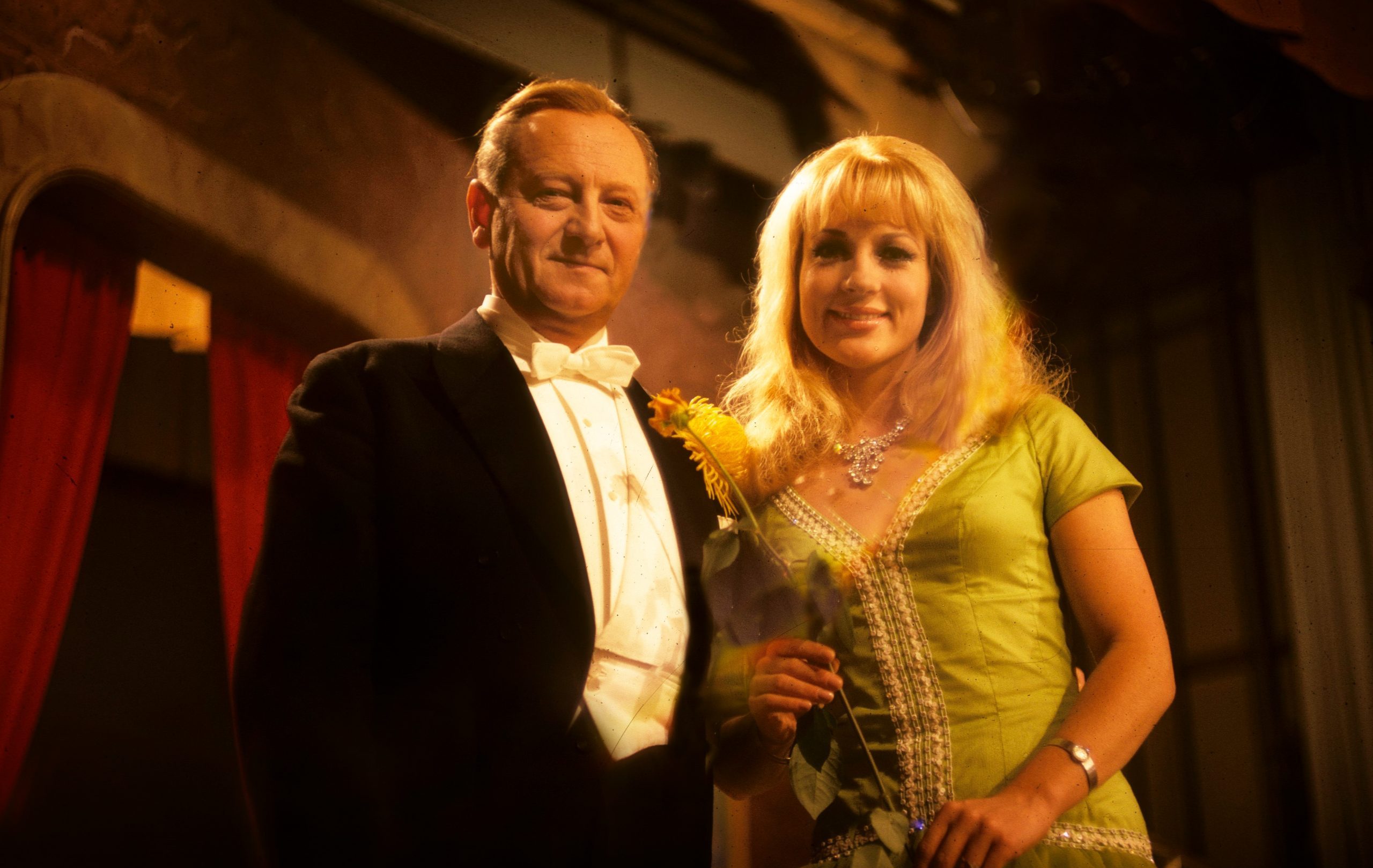Part one
Looking back on her career, Maria Callas once said that the art of opera was dead and must be rejuvenated. This radical statement that opera was dead might have been correct – had it not been for opera singers like Max Lichtegg. Singers like him saved opera from extinction. Even in the thirties and forties, operettas were preferred to operas in many places: The aspiring singer Max Lichtegg was not spared from this trend. For a long time he ran the risk of being labelled an “operetta tenor” – but he fought back.
The story of the singer Max Lichtegg, whose real name was Munio Lichtmann, began in the former Galicia: There, the Lichtmann family lost large parts of their possessions in the turmoil of the First World War. The future in their homeland was uncertain. Nine-year-old Munio was sent to Vienna, the European metropolis of music, in 1919: From then on, Vienna was Lichtegg’s childhood and youth home. He was never to see his birthplace again for the rest of his life.
One thing was certain: Max Lichtegg did not want to part with singing.
Recording at a young age
Even at a young age, Max Lichtegg is said to have been fascinated by singing of all kinds – it didn’t take long before he performed in the boy’s choir of a Viennese synagogue. During one of these performances, the young singer caught the eye of the Viennese cantor Emanuel Frenkel: The cantor arranged for Lichtegg’s young voice to be recorded on vinyl. At that time, it was anything but usual for a very young singer to get recorded: Microphones only existed in the form of a huge, tinny funnel and the technology was still in its infancy. If the corresponding recordings had not been lost, Max Lichtegg would possibly have gone down in music history as the first record singer to stand in front of a microphone at a very young age.
One thing was certain: Max Lichtegg did not want to part with singing. But would he one day be able to earn a living with it?
Opera debut
Because Max Lichtegg did not know the definitive answer to this question, he studied philosophy in Vienna from April 1929. He decided: No matter how promising his singing career might be at first, he wanted to build a secure foothold for himself. Max Lichtegg celebrated his opera debut on 23 October 1934 in the role of Count Almaviva in Rossini’s The Barber of Seville.
Around the same time, his friend, the pianist Walter Pirk, made him an unusual proposal: he suggested he apply to the competition of “Viennese jazz bands and jazz singers”. Max Lichtegg’s initial reaction to this offer was not very enthusiastic: A competition for jazz singers? Would this be the right place for an aspiring opera singer to prove himself? Despite his doubts, he let himself be carried away to take part in the competition – and was not to regret it. Among other things, Lichtegg sang a song from the recent Joseph Schmidt film at the competition: apparently the audience fell in love with the young tenor – Lichtegg took home the first prize. From then on he was a sought-after singer in Vienna.

A real “Charming Boy”
Lichtegg was invited by the “Viennese waltz master” Oscar Straus to take part in the premiere of his new operetta Das Walzerparadies [The Waltz Paradise] on 15 February 1935. A contemporary review of the premiere spoke of a “(…) real charming boy with a slender, metallic tenor (…)” named Max Lichtegg.
At this time, Lichtegg was gathering fame primarily as an operetta tenor: although his need to be on stage was fulfilled, he was by no means satisfied with being reduced to operetta as a singer.
His next career goal was an engagement at the opera house in Zurich: there, however, Lichtegg was initially turned down. Nevertheless, his path led him to Switzerland: from 1936, Lichtegg received an engagement at the Bern Theatre. There the tenor sang the role of Danilo in Franz Lehár’s The Merry Widow for the first time. Despite his great stage successes at a relatively young age, Lichtegg did not rely on the fact that his success would last: as soon as he arrived in Bern, he immediately continued his university studies – in addition to his activities for opera and operetta.
The permanent guest performance
From 1937 Max Lichtegg signed a guest contract with the theatre in Basel: this employment meant that from then on he could choose his own roles and pursue his studies more effectively. The fact that he could now choose his own parts was an enormous advantage for Max Lichtegg – so he could finally take part in more operas.
When he was offered the part of Don Carlos in Verdi’s opera of the same name in 1939, Lichtegg reacted hesitantly at first, despite his goal of singing in more operas: the conductor Otto Ackermann was on hand to advise the then 29-year-old tenor and Ackermann strongly recommended that he accept the role. Although the role was to present him with a great challenge, Lichtegg accepted the offer. With the role of Don Carlos, Lichtegg had finally arrived in the opera genre as he had imagined it. The Italian tenor Salvatore Salvati (1885 – 1959), Max Lichtegg’s singing teacher, also supported him in successfully playing the role.
During the period of his “permanent guest performance” in Basel from 1937 to 1940, Lichtegg never lost sight of his goal: an engagement at the Stadttheater Zurich.
Almost ten years after beginning his career as a singer, he took it as certain that he would be able to live permanently from his singing.
Arrived in Zurich
In March 1940 Max Lichtegg was given the opportunity to audition for the role of Almaviva from the The Barber of Seville (Rossini) at the Zurich City Theatre: The audition was crowned with success – he returned home with a contract for the 1940/1941 season. It was only with the contract with the Zurich City Theatre in his pocket that Max Lichtegg decided to end his university studies: Almost ten years after beginning his career as a singer, he took it as certain that he would be able to live permanently from his singing.
In his contract with the Zurich City Theatre, it was foreseen that he would continue to play operetta roles – but the focus was clearly to be on opera. Right at the beginning of his engagement in Zurich, Max Lichtegg fulfilled a special dream: he played in an opera by his favourite composer, Wolfgang Amadeus Mozart. Lichtegg expressed his admiration for the composer in the role of Tamino in The Magic Flute in December 1940.
Would Max Lichtegg be able to fulfill further musical dreams? No matter how famous Lichtegg was in Switzerland – on the other side of the Atlantic, a huge musical landscape awaited singers like Max Lichtegg: there were immense opportunities open to a singer like him in the USA, but it was also an incomparably tougher competition than on European stages…
Der Bussard expresses its gratitude to Mr Alfred Fassbind from Rüti near Zurich, author of the Max Lichtegg biography, for his cooperation.
The standard biographical work on Max Lichtegg written by Mr Fassbind, published in 2016 by Römerhof Verlag (Zurich), was kindly provided to Der Bussard. The biography served as the main source for the article.
Publication information: Fassbind, Alfred A.: Max Lichtegg – Nur der Musik verpflichtet [Only Committed to Music], 2016 Römerhof publishing house Zurich
Cover picture: Max Lichtegg 1935 in Vienna, by courtesy of Alfred Fassbind

 Deutsch
Deutsch Français
Français

